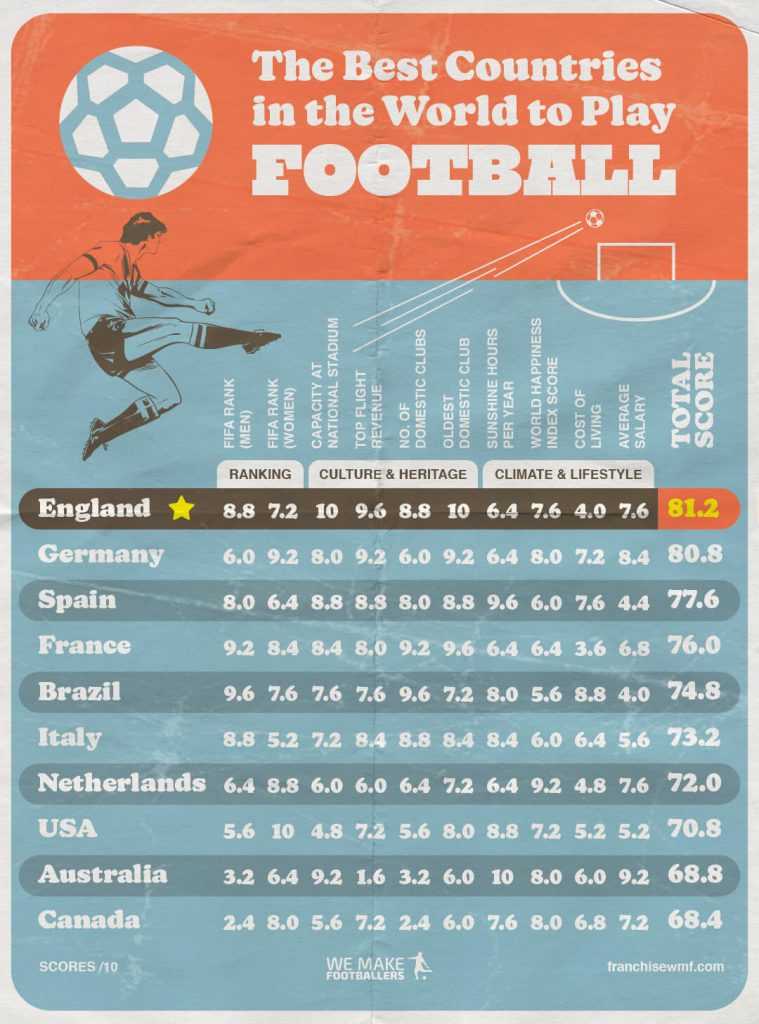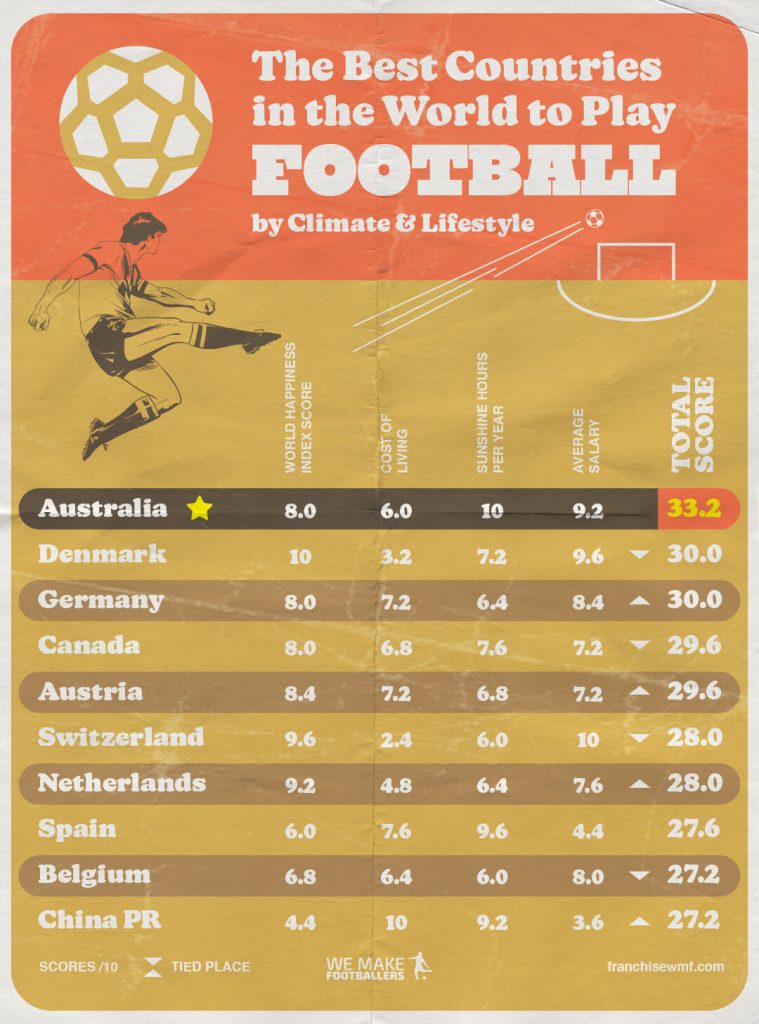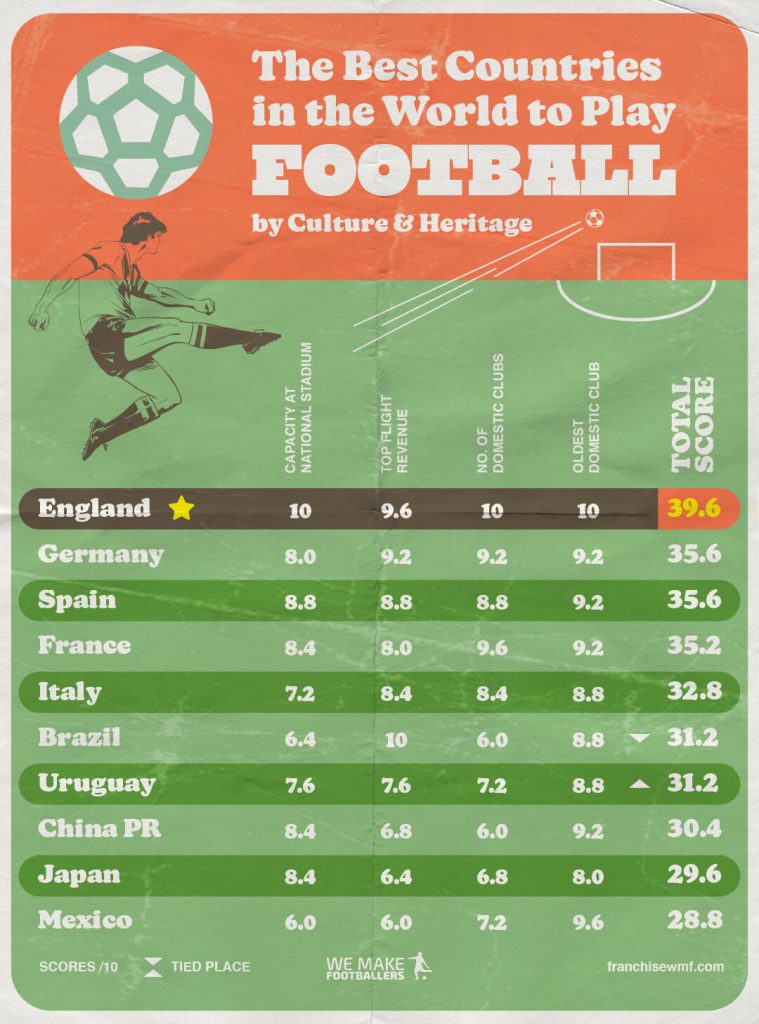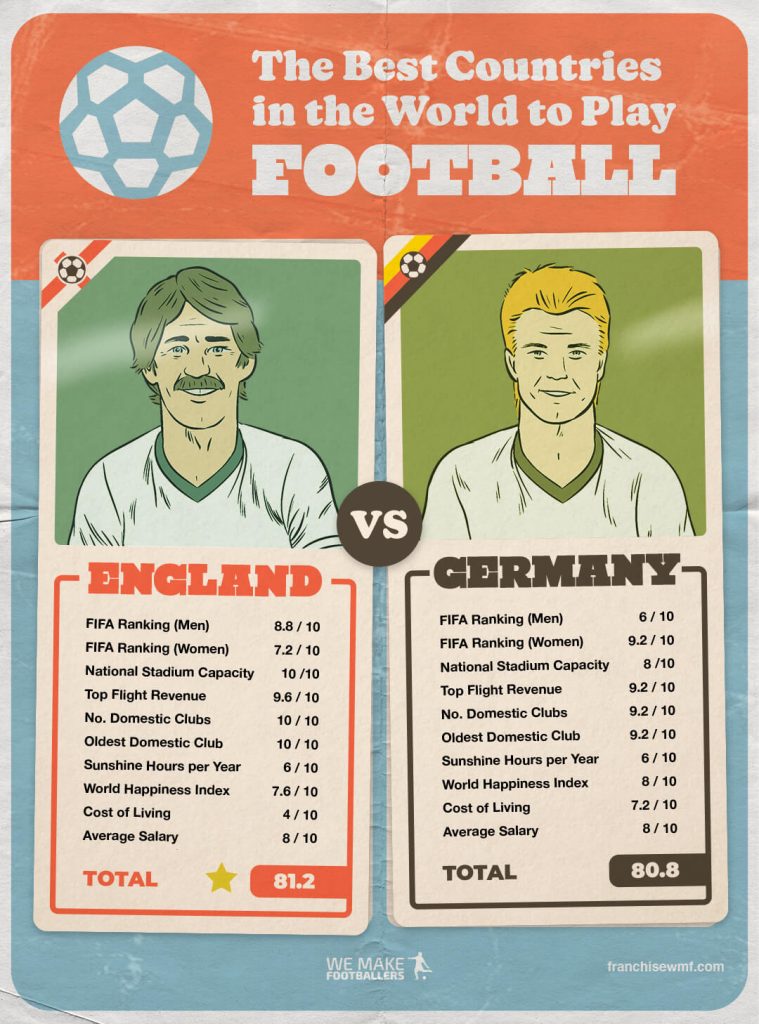Why do football coaches coach? Is it their desire to help football players realise their potential by coaching them in the ways of the sport?
Is it to learn more about the game and have a better understanding? Is it to shape the lives of children at a time when community projects have never been so important or vulnerable? Is it to inspire the next generation?
Is it out of love? Or an ambition to turn that love into something more, that many people involved at the grassroots level dream of – a full-time football career?
Turns out the answer to all those questions is yes. We spoke to some of our We Make Footballers franchisees to find out how their coaching journeys began, what motivates them to run their academies and where they see their careers in football going.
From their answers, here are some of the reasons why football coaches coach.
Helping players to realise their potential
The overriding aim of every football coach is to improve the players they work with. For some children, helping them to realise their potential will lead them into a grassroots team.
For others, it might take them all the way into a professional academy and set them on the path to a career in the sport. That could prove life-changing for both the child and their family.
Just ask Raheem Sterling, who went from skirting away from gangs in London to a full England international whose prospects were utterly transformed by the sport. Or Kyle Walker, who went from Sheffield Council Estate to champion of England at Manchester City. Or any of the other countless examples of players in the professional ranks whose lives might have gone down a very different path had football not come along.
Helping players realise their potential is the reason that Russell Lew set up We Make Footballers Milton Keynes. Russel says there is nothing more rewarding than seeing a player take something you have coached them in practice and use it in a game situation. “We play one-on-ones and two-on-twos during training and when you see somebody do a stepover, a Cruyff Turn or a piece of skill we have been practising in the earlier drills, that just makes me feel good. You feel as though you have made a difference.”
And that difference can take a young player far. We Make Footballers Carshalton & Coulsdon franchisee Simon Karrie speaks with pride of the opportunities that his academy offers players through its links with Crystal Palace and other clubs in the south London area. “It is all little bits of a jigsaw that helps create a pathway for our players,” says Simon. “Top players at our academy, we create pathways for them to get into pro football potentially.”
Marcelo Graca from We Make Footballers Chiswick & Southall speaks with pride of his “Galacticos” who have progressed to professional academies from under his watchful eye. “Matthew Dennis is at Arsenal, Lewis Richards is at Wolves, Richard Olise at Reading, and there are a few more at academies. We have been fortunate enough to work with such a
a talented bunch.”
Marcelo’s own journey into coaching happened almost by accident. “I was asked to referee an Under 7s game and it took me by surprise because of the talent I saw that day, I was gobsmacked. It made me want to enter the world of coaching and have my own impact.”
It is that prospect of having their own impact on the stars of tomorrow and helping them to reach their potential which is why many football coaches take up coaching.
Because football gives a buzz
When Russell talks about the rewarding feeling of seeing one of his players pull off that stepover or Cruyff Turn, you can tell the almighty buzz he gets from it.
That is common across football. For there is no better feeling than the height that comes from coaching. It is a bug that bites you and once you are bitten, it is hard to shake the addiction.
Many coaches stumble into it as Marcelo did, taking up roles because of a lack of volunteers and suddenly finding themselves discovering how much fun grassroots football can be.
We Make Footballers Essex franchisee David Pipe was pushed into coaching when he was only a teenager himself. There has been no looking back from there. “I have been coaching since I was about 15 years old myself,” David explains. “My dad just said ‘Do you fancy coaching?’ one day and I took him up on the offer. I was handed loads of five-year-olds, I didn’t have a clue what I was doing but I really enjoyed it and got the bug.” David has been coaching grassroots football ever since, including part-time roles at Millwall and Colchester United. The reason he does it is simple – that unbeatable buzz that coaching brings. And now he gets to experience it every day. Setting up his We Make Footballers academy in 2018 allowed David to go full time in football, achieving the dream of many coaches – to turn their love of the game into a career.
To turn their love of football into a career
The prospect of a football career is one of the biggest reasons why football coaches coach. With hard work, determination and the right opportunities, a role that starts as volunteering at a local grassroots club can eventually lead to a full-time career.
Getting into football at a professional level is not easy. For every academy coaching job advertised, clubs expect to receive a minimum of 150 applicants. Some applicants will have BTECs or degrees in sports science. Others might have a Masters or a PhD. The competition is hot.
We Make Footballers can help their franchisees and coaches get their foot in that door. Opportunities to work in coaching and scouting roles for professional clubs arise frequently thanks to the reputation We Make Footballers has across the game.
Simon combines running the Carshalton & Coulsdon Academy with his role as a firefighter. The dream though is to eventually go full time in football, something which he is moving towards.
“The fire brigade takes up 48 hours of my week, so I fit in my franchise basically in and around that. I have been in the firefighter bridage for 12 years and I love my job, it is a great job, however, if I could go full time in football then I would. That is an ambition and a desire of mine to get there.”
“Being involved with We Make Footballers has helped me take the first steps towards transitioning into full-time football, absolutely.”
“From the point of the franchise itself, you can grow and grow and grow and expand. I’ve gone to four classes a week and over 220 students or thereabouts. Obviously, that is endless and you can carry on growing.”
Turning a We Make Footballers academy into a full-time occupation is one way to launch a career in football. Simon continues: “But there are also the opportunities that have opened up for me with professional football clubs.”
“I work with Crystal Palace and that has come from We Make Footballers Carshalton & Coulsdon. That would not have happened if I didn’t have my area.”
“It is a good environment not just for my players but also for my coaches as there are pathways into Palace for them if they want to pursue it. And obviously, my own pathway has come from that.”
Marcelo meanwhile has already made the jump to working full time in football: “We Make Footballers and my experiences coaching have enabled me to start scouting, firstly at QPR and now at Tottenham. The two jobs (coaching We Make Footballers and scouting young players) go hand-in-hand.”
To increase knowledge, understanding and gain recognised qualifications
To become a football coach in England, there are a series of qualifications which have to be obtained via the Football Association. These ensure that individuals can give a high level of coaching to players under their tutelage.
Previously, a coach would earn their FA Level 1 and FA Level 2 badges before progressing to UEFA’s qualifications. Recent changes in response to the pandemic however mean that the Introduction to Football Coaching qualification replaced FA Level 1 in 2021. FA Level 2 is now no longer running; the UEFA C Licence will be introduced in 2022 in its place.
The new qualifications feature more independent, remote learning to make them accessible to potential coaches who may not have otherwise had the time to complete the old courses, where physical attendance has been deemed a necessity.
Becoming a coach means passing the qualifications. Passing the qualifications means increasing your knowledge of football. This is a reason for some coaches taking up the role.
They want to better understand the theories and ideas behind what happens on the pitch and how they are put into practice on the training ground.
We Make Footballers provide franchisees and coaches with in-house, additional training and qualifications, building on their FA and UEFA qualifications and deepening their knowledge of what it takes to be a successful football coach.
David describes the coaching session training he regularly receives to help operate the Essex franchise as “amazing”. The training provided by We Make Footballers does not stop there – off the pitch, franchisees are given help and guidance understanding the business side too.
“Everything is very detailed, from the finance stuff to the admin behind the scenes,” says David. “We had a week or so of training and then great support from head office since then.”
“I can’t count the number of emails I have sent head office but they always respond straight back. It has just been a dream.”
Giving back to the local community and the sport
The role of football in the local community has never been more important. Lockdowns have adversely impacted the physical and mental health of children and budgets were being cut to the bone even before the pandemic.
Physical education in schools is no longer a priority and local councils cannot afford to provide services or maintain facilities. It is a perfect storm having a detrimental effect on the life chances of children.
Football coaching, therefore, gives back to the local community. It provides a means of keeping children fit, active and off the streets. Coaches become role models and mentors who can try and shape the lives of their young players.
Academies provide safe spaces for children to play, exercise and socialise with like-minded children. When football coaches provide such a service, it is not an exaggeration to say that it can be life-changing.
Coaching football does not just give back to local communities. Many coaches take up the role to give back to the sport they love, repaying the fun and enjoyment it has given them.
At some point in a coaches life, they were once the player benefiting from the knowledge and wisdom passed down to them by their own grassroots coach.
Football coaching is cyclical in that way; players become coaches, who coach players who become coaches. Often, the best way to give back to football is by helping to inspire a new generation to love it as much as you have.
To find out more about joining We Make Footballers and taking your own first steps into a rewarding career as a football coach, please see the WMF franchisee website for more details.




